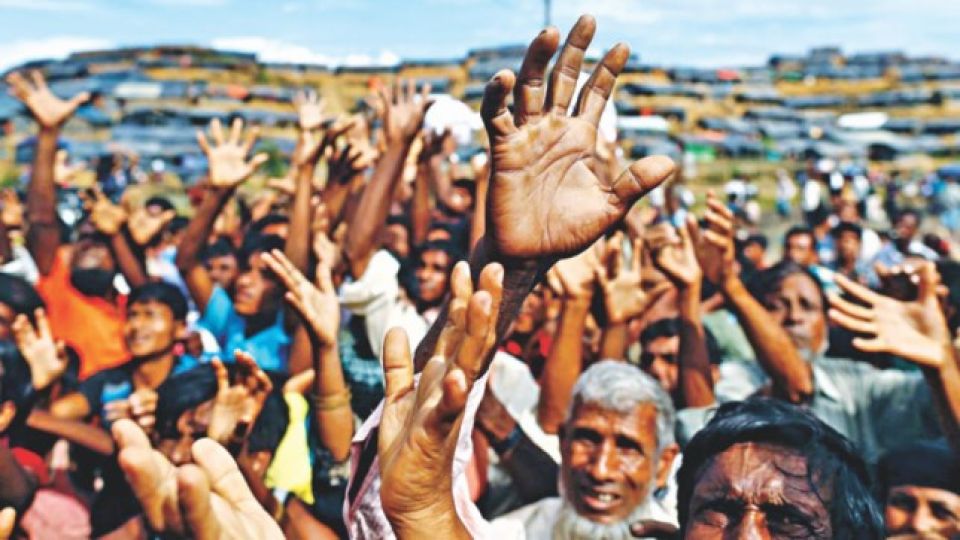November 8, 2019
Myanmar has done little for the repatriation of Rohingyas.
The US has condemned Myanmar’s inaction in creating conditions conducive to a voluntary, safe and dignified return of the Rohingyas.
In a statement following a visit by two top US officials to Bangladesh between November 5-7, the country also underscored that it would continue its efforts to bring an end to the refugee crisis.
USAID Deputy Administrator Bonnie Glick and Acting Assistant Secretary of State Alice G Wells travelled here to promote expanded US-Bangladesh bilateral relations, boost commercial and security ties, and address the ongoing Rohingya crisis, according to a statement released by the US embassy in Dhaka.
During their time in Bangladesh, the duo visited Rohingya camps in Cox’s Bazar, home to some one million Rohingyas, including some 750,000 who fled a brutal military crackdown in Myanmar since August 2017.
They also met ministers, government officials, business owners and opposition leaders during their visit.
“In her meetings with government of Bangladesh officials, Acting Assistant Secretary Wells stressed that the solution to the Rohingya refugee crisis lay in Burma and condemned the inaction by Burmese authorities to create conditions for voluntary, safe, and dignified returns,” the statement said.
She stressed that the US would continue its bilateral and multilateral efforts to bring a conclusion to the crisis.
Though Bangladesh and Myanmar signed a bilateral deal on repatriation more than two years ago, the Rohingyas did not volunteer to return in the two efforts made last year and this year.
They say conditions in Rakhine are not conducive to a safe and sustainable return, a statement which is endorsed by the UN.
The refugees also said there was no guarantee of citizenship and safety in Rakhine.
In July this year, the US announced sanctions against the Myanmar military’s Commander-in-Chief Min Aung Hlaing and other leaders who it said were responsible for extrajudicial killings of Rohingyas and barred them from entering the United States.
The US, which is the leading contributor of humanitarian assistance, providing more than $669 million since the escalation of violence in August 2017 (more than $553 million inside Bangladesh; the rest in Myanmar), also called on others to join in contributing to this humanitarian response.
While meeting Foreign Minister AK Abdul Momen, Foreign Secretary Shahidul Haque, and the Prime Minister’s Adviser for International Affairs Dr Gowher Rizvi, Alice also reviewed the US-Bangladesh relationship and discussed enhancing defence cooperation.
She also touched upon strengthening governance and rule of law and highlighted the US Indo-Pacific Strategy’s (IPS) opportunities for further US-Bangladesh partnership. IPS is aimed at improving connectivity through the Indian Ocean — business, governance and security being its main aspects.
During the meeting with Home Minister Asaduzzaman Khan, she discussed counterterrorism cooperation and US support for fully implementing Bangladesh’s National Plan of Action to eliminate trafficking in persons.
“Meeting with opposition leaders from the Bangladesh Nationalist Party and the Jatiya Party, the acting assistant secretary stressed the importance of credible and contested municipal elections,” the statement said.
Wells also hosted roundtables with US apparel brands, manufacturers and labour groups to hear more about the ongoing efforts to improve labour rights and working conditions.
While meeting officials of the Bangladesh Investment and Development Authority, USAID Deputy Administrator Glick reinforced the agency’s commitment to supporting Bangladesh’s efforts to improve the business-enabling environment.
She also highlighted USAID’s partnership with Bangladesh and the private sector to diversify Bangladesh’s economy and stimulate economic growth.


